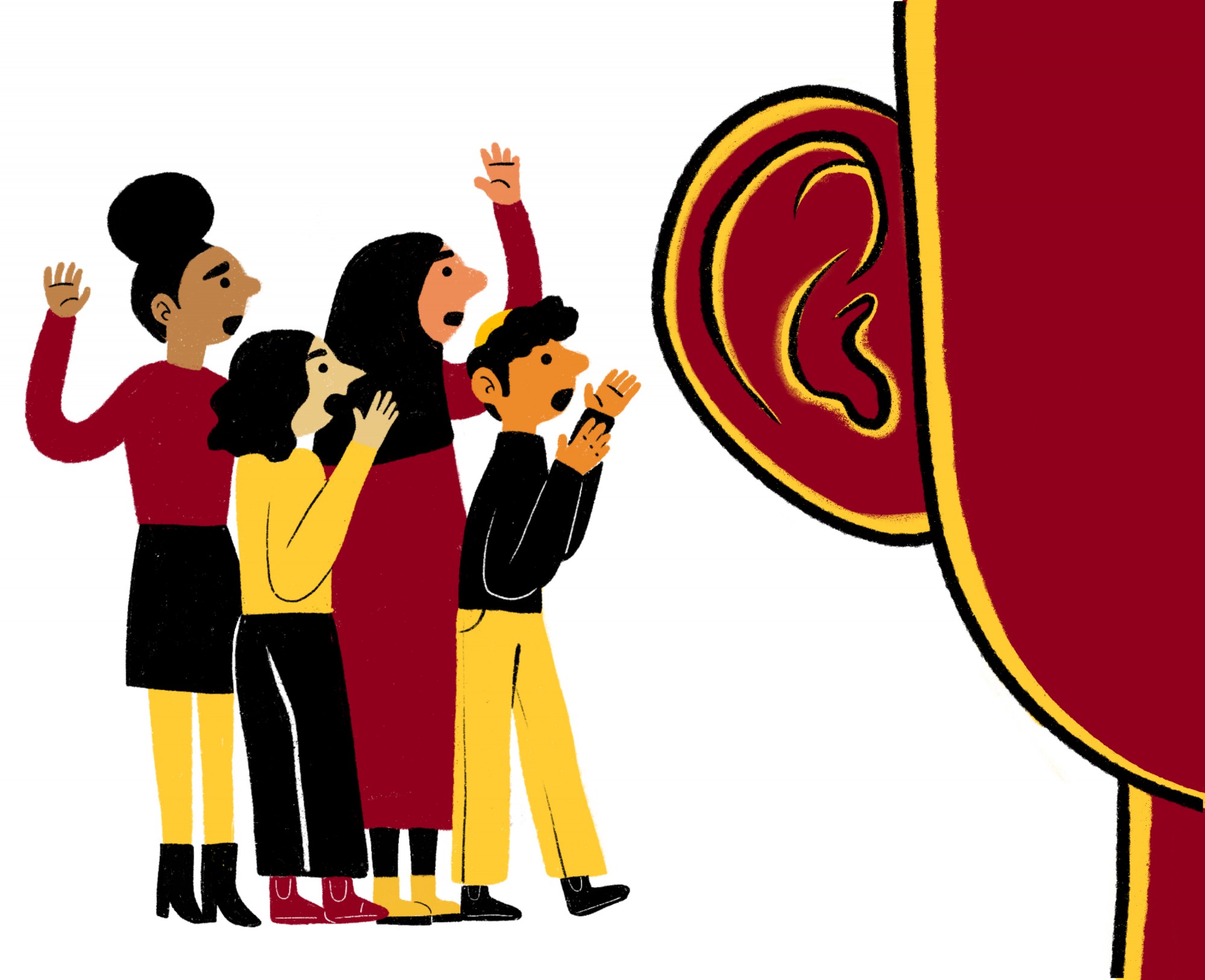The University of Minnesota expanded its gender care coverage offered through the employee benefit plan to include certain secondary procedures, such as facial masculinization or feminization and electrolysis for facial hair removal. The expanded health care coverage went into effect on Jan. 1.
The expanded coverage emerged from collaboration between the Gender and Sexuality Center for Queer and Trans Life (GSC), the Transgender Advisory & Action Team (TAAT) and the Office of Human Resources (OHR).
“We sent out the announcements on behalf of the OHR, TAAT and the GSC,” finn schneider, the interim director of the GSC, said. “Before the end of that day, we had almost a dozen responses of employees and students as well, expressing their excitement.”
In an email to the Minnesota Daily, TAAT co-chair and healthcare working group Chair Beth Elliott-Thul wrote, “This project has been worked on by many folx that are current or former University employees and students, over many hours and many spreadsheets. It has truly been a project that people have put their heart and soul into.”
schneider said the healthcare system is not necessarily easy to navigate and is further complicated for people oppressed by the same system.
“For a long time, medical procedures or medical services that we as trans folks need to be healthy and well were exclusions or they were considered elective procedures,” they said.
schneider added that TAAT has worked to address these types of health care inequalities since its founding.
Mary Rohman Kuhl, the senior director of total compensation for the OHR, said the OHR got involved after noticing increasing frustration from people under the University’s health care plan around certain medical procedures not being covered.
Rohman Kuhl said the OHR consulted with Medica, the health care provider for the University, to determine what secondary care procedures are considered medically necessary to maintain a certain standard of care.
To determine the standards, the OHR looked to the World Professional Association for Transgender Health (WPATH).
WPATH determines guidelines, or “standards of care,” set to advise health professionals how to provide transgender or gender diverse people with the care needed to achieve personal comfort and maximize overall health.
The OHR reviews the WPATH standards to determine what services should be included in health care plans, according to Rohman Kuhl.
“Our attention was raised to those standards because of our internal partners at the U, like our TAAT group and other individuals that work in different departments across the U and have expertise in gender dysphoria,” Rohman Kuhl said.
Gender dysphoria is feelings of discomfort or distress that might occur in people whose gender identity differs from their sex assigned at birth, according to the Mayo Clinic.
When OHR consulted with Medica about expanding services, Rohman Kuhl said OHR found that Medica was already moving forward with having their covered procedures match the WPATH standards of care.
“Starting this fall, OHR committed to having very regular meetings with TAAT members. So on a weekly or bi-weekly basis, we had two of our members of TAAT who were very well-versed in the issue of healthcare meeting with an OHR employee,” schneider said. “I think that was an instrumental part of that progress.”
The change enacted on Jan. 1 applies to employees under the University employees medical plan offered by OHR.
However, schneider said another change TAAT would like to see is making other health care plans like the pharmacy plan, the employee assistance plan and the student plan more inclusive of transgender and gender non-conforming people.
“One of the things that TAAT is excited to do in the future is really build a relationship with the Office of Student Health Benefits, so that we can try to help that process when it comes time for them to bid on their plans again,” they said.
The WPATH is set to come out with new standards of care this spring, according to Katie Kolodge, the health and wellbeing consultant for the OHR. Kolodge said the OHR plans to continue the collaborative process of working with the GSC and TAAT to ensure that the OHR understands what is needed in terms of gender care and health care coverage.
“This truly is an incredible victory,” Kolodge said. “We’re so grateful and we’re like, ‘there’s more work to do. We got to get back to it.’”



















A Gopher
Feb 25, 2022 at 11:00 am
Gotta fight fire with fire. I identity as Dolphin and will be undergoing my dolphinplasty next year!
lostoncampus
Feb 23, 2022 at 10:45 am
Short story- everyones insurance rates are going up, so these services can be provided.
Yippee !